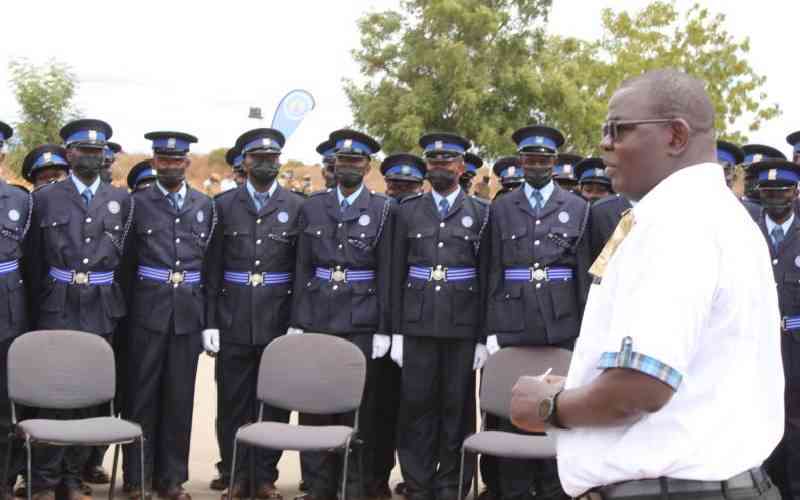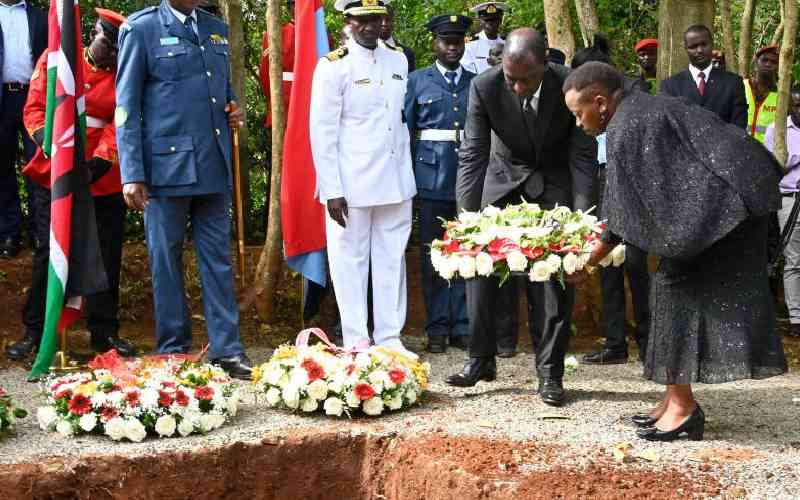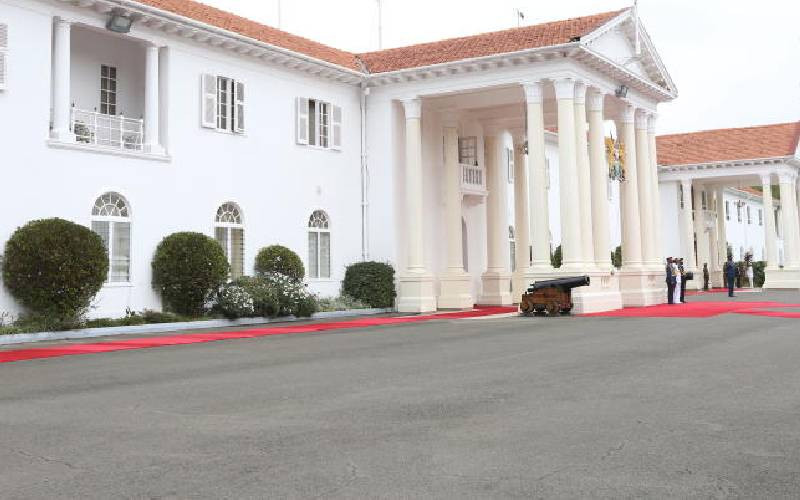That Joseph Nkaissery is a serious mind on national security is certain.
For detailed work on the background and conduct of the Ogaden war, no less than Kenya’s Truth, Justice and Reconciliation Commission (TJRC) recommends in the second volume of its final report that readers look into his his work - The Ogaden War: An Analysis and its Impact on Regional Peace on the Horn of Africa.
That the Kajiado Central MP will soon be appointed Cabinet Secretary for Interior and Coordination of National Government is no longer in doubt; fellow legislators and media outlets are outdoing each other in citing his impeccable resume.
The TJRC, once again, provides a peek into his contribution to public life. On page 131 of the fourth volume of its final report, he is named, alongside one Peter Langat (then a District Commissioner), as having allegedly engineered human rights violations in the present-day West Pokot County.
“From February 22 to May 22 (1984), he spearheaded Operation Nyundo that resulted in many people losing their lives and over 20,000 animals starving to death. The operation was also punctuated with rape and beating of the locals. The disarmament exercise resulted in deaths of civilians in what has come to be known as the Lotiriri Massacre,” the report says.
For Rev Simon Alew – who appeared before the TJRC - the Pokot community’s two experiences at the hands of security agencies, these days known as the Kacheliba Massacre and the Lotiriri Military Operation of 1984, are never to be forgotten.
“The operation of 1982/84 was the major one, where the Government of Kenya declared that the Pokot community should be disarmed. The disarmament turned into kind of a communal punishment. I am calling it a communal punishment because everybody, even if you were a peacemaker, a bishop or a professor; was treated equally. So, if it was beating, you were all beaten.
There were some people who were beaten and tortured. Over 25,000 herds of cattle were taken to Kacheliba Police Station. More than 10,000 cattle died in the same police station and the remaining 15,000 were transported to unknown places,” he narrated in Kapenguria.
The Government, he recalls, gave a back-handed compliment to those suing for peace.
“When the Government went round to collect firearms, they announced that: “If you surrender your gun, you will be given a certificate of confirmation.” People were informed that when the military helicopter arrives, they should raise the certificates to identify themselves as peaceful. Mzee Atoligole Losute became the first person to surrender his gun, and when he raised his certificate, the helicopter landed. He was told that since he was good, they were going to take him around as an example to others,” says the reverend.
He reveals that Losute got into the helicopter as his wives looked on, only to be secured by neck inside the chopper. “The helicopter took off and after about 30 minutes, that old man died. His body was dumped at the Kenya-Uganda border,” he says and adds that, “Mzee Achelo suffered a similar fate. When he raised his certificate to indicate that he was a peaceful person, he was instead sprayed with bullets. Three other people were killed at a place called Karamel in Nikunyau Division.”
The report notes that summons for him to appear before it notwithstanding, “Major General (Rtd) Nkaissery failed to appear before the Commission for hearings on February 23, 2013 and again on April 8, 2013.”
In its findings and recommendations, the TJRC stated that the Director of Public Prosecutions needed to prosecute Nkaissery.
In the year following the release of the TJRC report, a number of public figures have pressed for the report’s revision or delay in implementation of its recommendations. One of those people is the the good general, often aided by Majority Leader Aden Duale.
The argument in some quarters is that the bar has already been set low by the ascension of both President Uhuru Kenyatta and his deputy, William Ruto, to the nation’s leadership, regardless of their “personal challenges” at the International Criminal Court (ICC).
Stay informed. Subscribe to our newsletter
Victims of State-sponsored terror will look forward to Nkaiserry’s tenure with more than a passing interest.
 The Standard Group Plc is a
multi-media organization with investments in media platforms spanning newspaper
print operations, television, radio broadcasting, digital and online services. The
Standard Group is recognized as a leading multi-media house in Kenya with a key
influence in matters of national and international interest.
The Standard Group Plc is a
multi-media organization with investments in media platforms spanning newspaper
print operations, television, radio broadcasting, digital and online services. The
Standard Group is recognized as a leading multi-media house in Kenya with a key
influence in matters of national and international interest.
 The Standard Group Plc is a
multi-media organization with investments in media platforms spanning newspaper
print operations, television, radio broadcasting, digital and online services. The
Standard Group is recognized as a leading multi-media house in Kenya with a key
influence in matters of national and international interest.
The Standard Group Plc is a
multi-media organization with investments in media platforms spanning newspaper
print operations, television, radio broadcasting, digital and online services. The
Standard Group is recognized as a leading multi-media house in Kenya with a key
influence in matters of national and international interest.







